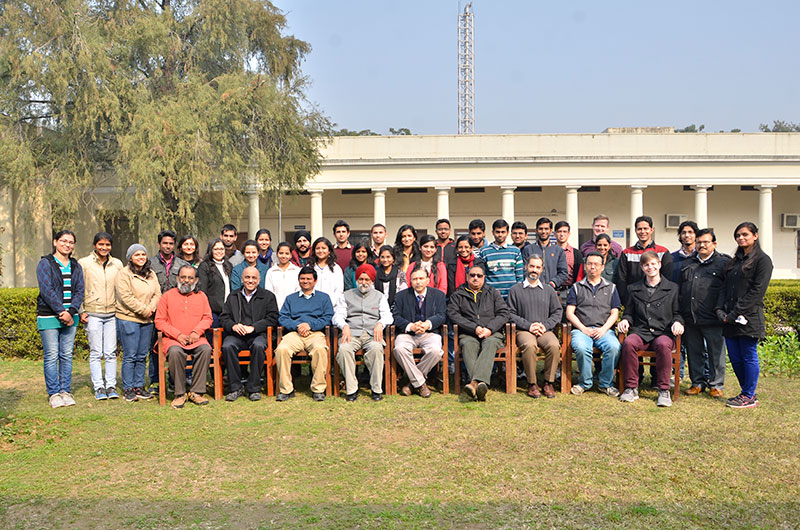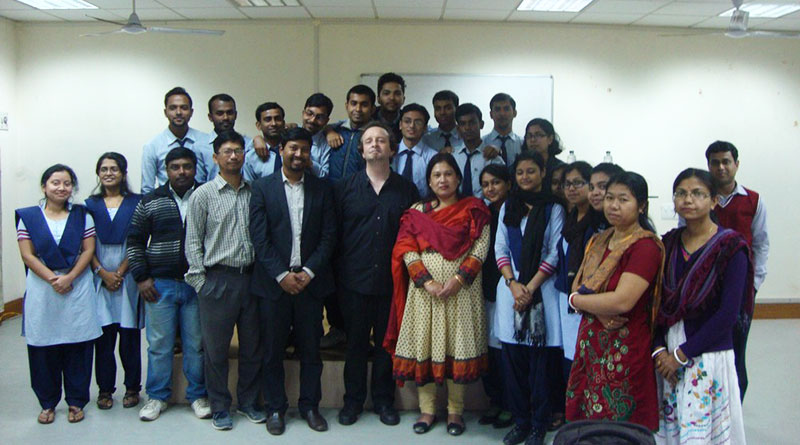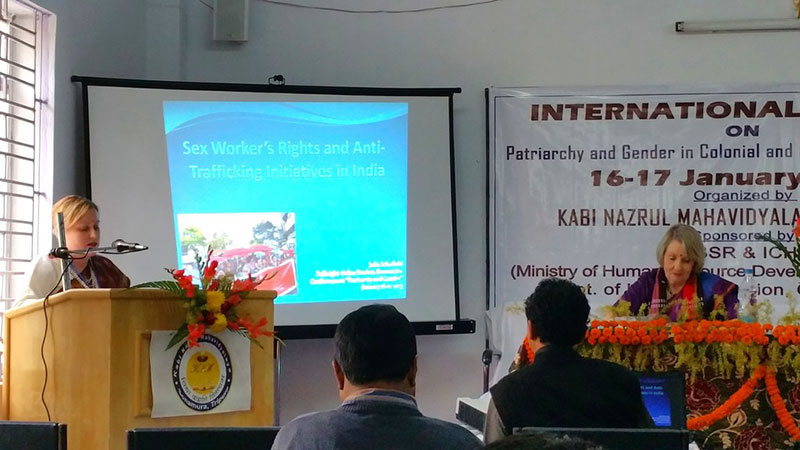Bruce Altschuler, emeritus professor of political science, is the author of the lead article in the fall issue of PEP Report. The journal is published by the Presidents and Executive Politics Section of the American Political Science Association. Titled “Presidential Nostalgia,” the article analyzes “All the Way,” the recent Broadway play, for its historical accuracy and its use of the great person theory of the presidency.
Richard Cocks of the philosophy department is the author of the article “Are Friends Electric?: Machines, Emotions, and the Importance of Rule Breaking,” which appears in People of Shambala. In the article he argues that philosophers who are attracted to the notion that human beings are machines or robot-like tend to be individuals of low emotional intelligence and are themselves robot-like in their absence of obvious affect. Such people extrapolate from their own impoverished phenomenology (subjective experience of their own consciousness and states of mind) to cover all people. He describes one person who went so far as to claim that emotions do not exist. The article supplies reasons why such an ad hominem is appropriate in this instance.

At the Indo-U.S. Science and Technology Forum Joint Center Monitoring Workshop next month at the Indian Institute of Science in Bangalore, Shashi Kanbur of the physics faculty is scheduled to make the closing presentation on “Analysis of Variable Star Data” with H.P. Singh of the University of Delhi. The two are lead principal investigators on the project. Kanbur is pictured among participants in the January meeting of the two Indo-U.S. Joint Centers on Variable Stars and Astronomical Transients at the University of Delhi.
Chemistry faculty member James Pagano, director of Oswego’s Environmental Research Center, recently won a $150,000 grant to assist the Wisconsin Department of Health in analyzing samples for a study titled “Wisconsin’s Assessment of Healthy Consumption of Great Lakes Fish.” Wisconsin, thanks to a federal Environmental Protection Agency grant, aims to design and implement a program to boost the effectiveness of fish advisories among people living along the southern shore of Lake Superior by clinically intervening to facilitate individual dietary changes and corresponding reduction in exposure to toxic contaminants from eating fish. The college’s Environmental Research Center, long active in assessing Great Lakes fish for such contaminants as polychlorinated biphenyls and organochlorine pesticides, will use Agilent 7890 gas chromatographs in the analyses. Oswego is collaborating with Clarkson University, which also will perform chemical analyses as a subcontractor on the Wisconsin grant.

Damien Schofield, director of the human-computer interaction program, in January delivered a course on human-computer interaction to 25 doctoral students of computer science at the University of Calcutta. He also gave a lecture at the Tripura Institute of Technology in India, where he is pictured.
In January, Oswego graduate Julie Schofield, pictured, left, currently in India on a Fulbright Award, and Geraldine Forbes, pictured, right, emeritus distinguished teaching professor of history, presented papers at an international conference in Tripura, India, on the theme “Patriarchy and Gender in Colonial and Post Colonial South Asia.”

Junior Julia Shipley has received one of only three full scholarships awarded this year by Pi Delta Phi, the national French honor society, for summer study at IAU College in Aix-en-Provence in France. The award covers full tuition, lodging, partial board and travel expenses. Shipley is a junior majoring in both French and language and international trade and is participating in the Honors Program.



